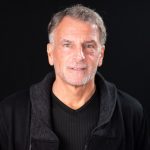
There is a saying we have all heard: “Is the glass half full or half empty?” The beauty of that saying is that it hinges on perspective. The essence of the word picture is that a glass, filled halfway with water, can be perceived as almost full or almost empty. There are times in my life that I see things from both perspectives. Half empty triggers in me a sense of scarcity, implying that things will get progressively more challenging with less available resources. Half full triggers a sense of abundance, implying that things will get progressively better because resources are abundant.
I believe that these crossroads appear more often than not when problems arise. We face problems every day, some large and some small. Sometimes the problems we face are extremely difficult to maneuver, perhaps even life threating, and other times a problem is hardly noticed and a mere inconvenience. A problem (my own definition) is “something that displaces my current sense of understanding.” For example, a glass of spilt milk at the breakfast table is a problem because my “sense of understanding” is that milk belongs in a glass where it can easily be consumed and not make a mess. Milk that falls out of a tipped glass can no longer be consumed and creates a mess.
However, what about problems that arise that are significant? Problems around our ability to provide for ourselves and those that depend upon us. Problems that threaten our very life such as a significant health issue. Perhaps we face relational problems; we had assumed that our marriage would be happy and life giving, our children would forever love us and not rebel, that our best friend would be that forever. Problems can be internal, a struggle with anxiety, depression, self-worth or a stubborn habit. Lastly, problems can be societal as we have experienced recently with the exposure of injustice, division, deception and the like. Therefore, when facing these small or large problems, do we face them with a sense of scarcity (half empty) or plenty (half full)?
 I tend to define whatever I face by defaulting to measuring my own capacity (do I have enough?) and/or my own capability (do I have what it takes?), which is influenced by my perspective.
I tend to define whatever I face by defaulting to measuring my own capacity (do I have enough?) and/or my own capability (do I have what it takes?), which is influenced by my perspective.
The loaves and fishes
I reflect on a famous story in the New Testament where Jesus and His interns (disciples) are managing a very large crowd, upwards of twenty thousand people, when the day begins to wane, and the crowd is hungry. The problem that is brought to Jesus’s attention is the fact that the crowd is getting hungry, and the suggested solution is to conclude the event and dismiss everyone to fend for themselves. The solution is logical and demonstrates a sense of concern for those who are hungry and timely. However, it does approach the problem from a scarcity mentality. The crowd is large and the visible resources available are not enough.
Jesus, however, seems to always be moving with the sense of abundance, even when it makes no sense to the watchful eye. Jesus made aware of this problem (frankly knew it all along) by the interns responds not with an understandably scarcity approach (again, the most logical in light of the circumstances) but shocks his interns with a solution that is wholly dependent on a perspective of abundance. He takes what little bit they do have, in this case five loaves of bread and two fish and works with it. The results, without a lot of fanfare, is everyone including the interns are satisfied. The solution to the very real problem is vastly different when approached from a perspective of abundance than scarcity.
The Promised Land
I am also reminded of a story in the Old Testament where God instructs Moses to send out 12 spies to look at the land that God had already promised He was going to deliver to the Hebrew nation (Children of Israel). The spies return after a forty-day excursion with some unbelievable reports of the abundance of the land but quickly pivot to a discussion around the observable challenges that they will face in taking possession of the God-promised land.
 However, two spies who acknowledge these observations, approach the decision from a perspective of abundance…. meaning, “God said He was going to give us this land and fight for us. What are we waiting for? Why so much discussion? Let’s go!” Again, the difference between a perspective of scarcity and abundance. Unfortunately, like in many of our lives, scarcity prevailed, and the Hebrew nation abandoned the effort to acquire the God-promised land and spent forty plus years in the dessert, many never experiencing this blessing.
However, two spies who acknowledge these observations, approach the decision from a perspective of abundance…. meaning, “God said He was going to give us this land and fight for us. What are we waiting for? Why so much discussion? Let’s go!” Again, the difference between a perspective of scarcity and abundance. Unfortunately, like in many of our lives, scarcity prevailed, and the Hebrew nation abandoned the effort to acquire the God-promised land and spent forty plus years in the dessert, many never experiencing this blessing.
Capacity and capability
Spring is in the air. Covid appears to be waning. Some degree of normalcy seems to be returning, and yet we are weary, wounded and worried. Problems still exist because life still exists. I am reminded that my default continues to be centered around my sense of capacity and capability and when I realize how limiting that is, I tend to settle by wrapping myself in the so-called security of scarcity. Unfortunately, this never produces any answers, is wholly self-reliant and leads to greater discomfort and disappointment.
However, perhaps I stop long enough to see what God sees. I do acknowledge that when it comes to my own abilities, I only have some crumbs to offer, but that is the point. God takes whatever little I have (scarcity) and maximizes it (abundance). He alone does that.
Again, I take my situation and/or problem, present Him with what little I have (in many cases a few crumbs of hope and faith) and see what He does with it. The act of removing my perspective and replacing it with His only comes from spending more time with Him and less time with me.
I have noticed that when I live life from His abundance perspective, my capacity and capability increase. I am more capable of grace, mercy, love and compassion. I find that I am more patient, less anxious, less combative and quicker to say, “I am sorry.” Today, let’s ask God to graciously let us see things from His perspective, and perhaps we will begin to live from a perspective of abundance rather than scarcity.
 Stephan N. Tchividjian is the president and founder of the National Christian Foundation South Florida. Visit southflorida.ncfgiving.com to learn more. For more articles by Stephan N. Tchividjian, visit goodnewsfl.org/author/stephan-tchividjian/
Stephan N. Tchividjian is the president and founder of the National Christian Foundation South Florida. Visit southflorida.ncfgiving.com to learn more. For more articles by Stephan N. Tchividjian, visit goodnewsfl.org/author/stephan-tchividjian/

Comments